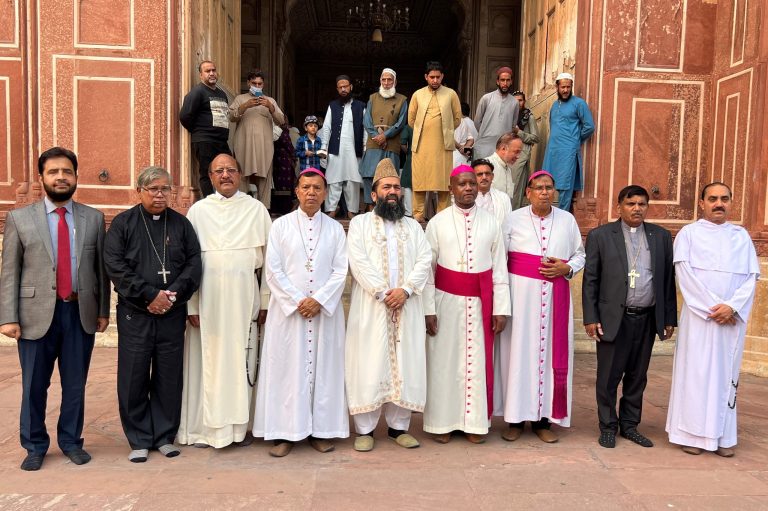PAKISTAN: Muslim leaders join Christians in denouncing extremism

Muslim leaders in Pakistan are increasingly speaking out against radicalism and promoting interfaith dialogue with Christians, according to an archbishop.
The voices of influential Muslim leaders and scholars “have become very important” in defusing religious tensions following a wave of anti-Christian riots in Jaranwala, Punjab Province, Archbishop Sebastian Francis Shaw of Lahore told Catholic charity Aid to the Church in Need (ACN).
Archbishop Shaw said that an ulema (a scholar of Islamic doctrine) apologised on behalf of his people at a press conference the day after thousands of Christians were forced to flee their homes as a Muslim mob went on a rampage in Jaranwala on 16th August.
Dozens of churches and hundreds of family homes were torched and looted following rumours that two Christian brothers had desecrated the Qur’an.
The archbishop said that Pakistan had originally been envisioned as a haven for religious freedom, where non-Hindus could escape India’s caste system.
He added that Christians were instrumental in ensuring that Western Punjab became a part of Pakistan in 1947.
He highlighted that the rise of radical Islam has been a problem for decades, adding that the government often seems to lack the will to crack down on extremists, leading to unrest across the country.
The archbishop said: “Pakistan is tolerating every evil, but the problem is that this evil then becomes so big that it is difficult to control.
“Many people were arrested after the riots, mostly members of the extremist TLP party.
“But the government finds it difficult to punish them, as there could be repercussions in other cities.”
He said: “Traditionally what they do is force reconciliation between Christians and the aggressors, so that we forgive them, and that might be what they will propose this time as well.”
He added that Muslims had initially found the concept of interreligious dialogue difficult to grasp, but “after several years of effort, now some of them have an understanding of what we are doing, and what we can achieve together.
“For example, we studied the Pope’s document on sustainability, Laudato Si’, together.
“Now, when they see incidents such as those that occurred in Jaranwala, many Muslims feel that this cannot be the image of Pakistan.”
Archbishop Shaw expressed hope that prominent Muslim leaders’ condemnation of the persecution of religious minorities might encourage the government to protect Christians and other faith groups and punish those who attack them.
He said that the ulemas are finally taking the initiative themselves, explaining: “Just last week we had a meeting in our bishops’ house, during which two ulemas, including the grand imam of Lahore, agreed to organise a national level interfaith conference in the federal capital of Islamabad.
“In this way they are also influencing the government to work more for dialogue and for a better society in Pakistan.”
ACN has supported a number of interfaith initiatives in Pakistan, including Christian-Muslim dialogue groups and the 2023 Don Bosco Football Tournament which brought together different religious communities.
With thanks to Filipe d’Avillez
